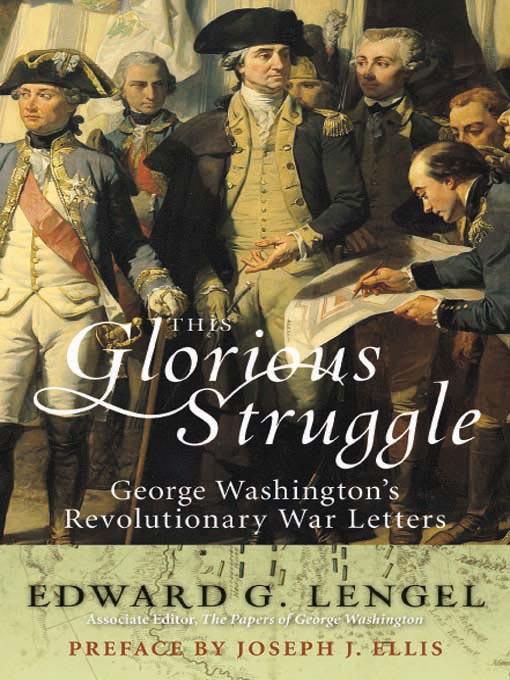
This Glorious Struggle
George Washington's Revolutionary War Letters
کتاب های مرتبط
- اطلاعات
- نقد و بررسی
- دیدگاه کاربران
نقد و بررسی

April 1, 2008
This selection of General Washington's letters constantly reminds us that the course of the American Revolution need not have gone as it did and that when "history" happens, there's no knowing how it will turn out: Benedict Arnold's treason might have succeeded in delivering West Point to the British, for instance, and Washington might have been replaced as commander. But reading here, you come to understand why the Colonies prevailed and why Washington achieved his semi-legendary stature. These letters, mostly to prominent military and political figures, reveal Washington's skill as a soldier, diplomat, and politician. Lengel (assoc. editor, Washington Papers Project) provides a brief note for each selection, giving its context as needed. The letters themselves cover a variety of subjects, such as details of enemy troop movements, views of French grand strategy in North America, propaganda intended to find its way into print, general orders, exhortations to the troops, and private ruminations. Lengel stresses that his book is by no means exhaustive. Nevertheless, his choices are superb, covering the highlights of Washington's Revolutionary tenure while illustrating his extraordinary personality. Although many academic libraries that own the comprehensive volumes of Washington's papers may opt not to buy this abbreviated offering, it is recommended for those without the series and for public libraries.Richard Fraser, M.I.L.S., Los Angeles
Copyright 2008 Library Journal, LLC Used with permission.

February 1, 2008
A scholar of Washingtons military career (General George Washington, 2005), Lengel samples Washingtons war correspondence. In topical range and variety of recipients, the collection conveys the types of problems that came to Washingtons attention and captures aspects of his personality as he dealt with them. Throughout the protracted war, Washington coped unendingly with army administration, extending from supplies to enlistments to discipline. Lengels selections in these areas show Washingtons sense of duty, which he repeatedly expressed as his reason for accepting the position of army commander. However, when threatened with removal in 177778, he maneuvered to keep the job, as a series of letters here shows. Battles, however, are what interest most modern readers, and they receive a sense of immediacy in Washingtons reports to Congress, usually written within hours of disengagement from combat, and covering the siege of Boston to that of Yorktown. Including personal letters that reflect Washingtons tastes and concern with the fortunes of friends and relatives, Lengels selection permits readers to trace the Revolutionary War as Washington experienced it.(Reprinted with permission of Booklist, copyright 2008, American Library Association.)

























دیدگاه کاربران